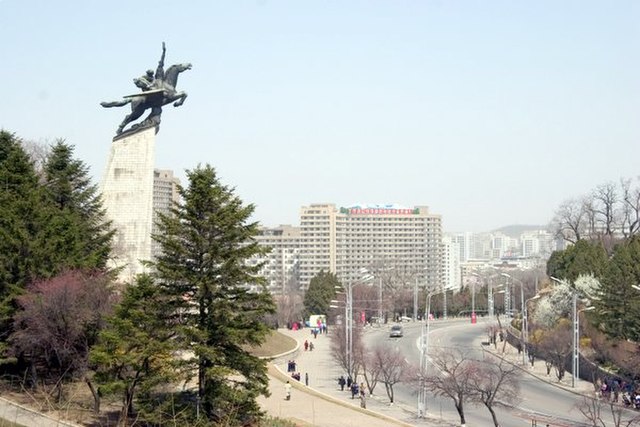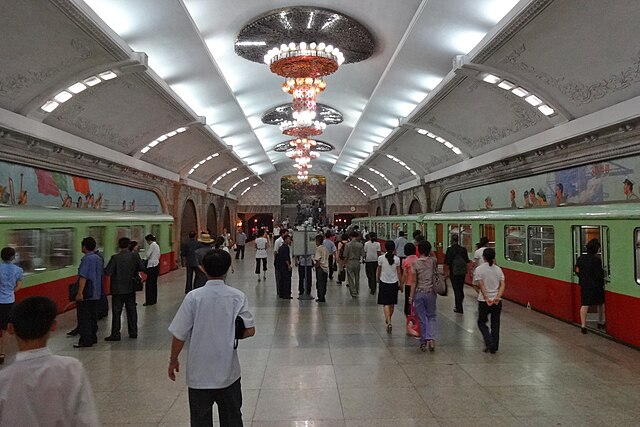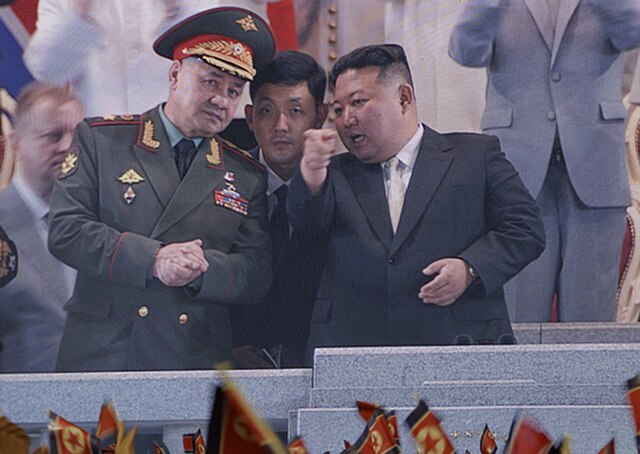Korean reunification is the aspired unification of North Korea and South Korea into a singular Korean sovereign state. The process towards reunification of the peninsula while still maintaining two opposing regimes was started by the June 15th North–South Joint Declaration in June 2000, was reaffirmed by the October 4th Declaration in October 2007 and the Panmunjom Declaration in April 2018, and the joint statement of United States President Donald Trump and North Korean leader Kim Jong Un at the Singapore Summit in June 2018. In the Panmunjom Declaration, the two countries agreed to work to officially end the Korean conflict in the future.
June 15th Joint Declaration signed by Kim Jong-il and Kim Dae-jung
Arch of Reunification, demolished in early 2024 in North Korea
South Korea's National Assembly. The woman holding a dove symbolizes democracy, peace and freedom.[citation needed]
North Korea has a state-run command economy aspiring for autarky (Juche) with a negligible market segment.
North Korea, officially the Democratic People's Republic of Korea (DPRK), is a country in East Asia. It constitutes the northern half of the Korean Peninsula and borders China and Russia to the north at the Yalu (Amnok) and Tumen rivers, and South Korea to the south at the Korean Demilitarized Zone. The country's western border is formed by the Yellow Sea, while its eastern border is defined by the Sea of Japan. North Korea, like its southern counterpart, claims to be the legitimate government of the entire peninsula and adjacent islands. Pyongyang is the capital and largest city.
Statue of Chollima Movement in Pyongyang
Pyongyang Metro with bomb shelter functions
Kim Jong Un with Russian Defence Minister Sergei Shoigu during the ceremonies marking the 70th anniversary of the end of the Korean War, in Pyongyang, 27 July 2023
Kim Tok Hun Premier of the Cabinet of the Democratic People's Republic of Korea



![South Korea's National Assembly. The woman holding a dove symbolizes democracy, peace and freedom.[citation needed]](https://upload.wikimedia.org/wikipedia/commons/thumb/b/bb/Seoul-National.Assembly-02.jpg/640px-Seoul-National.Assembly-02.jpg)




